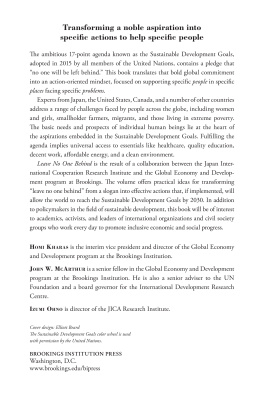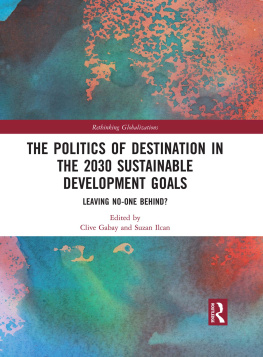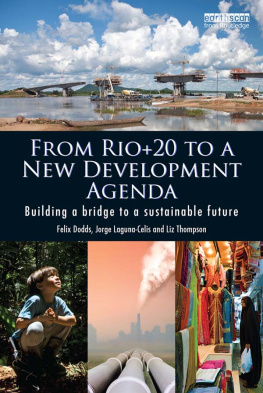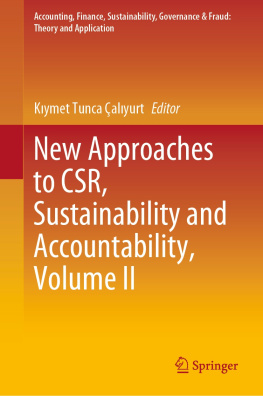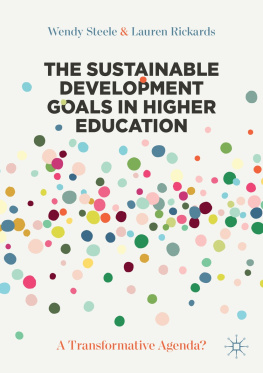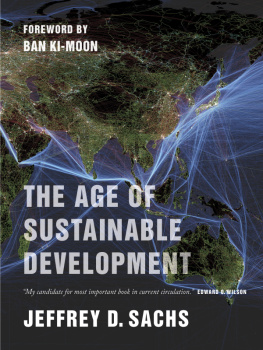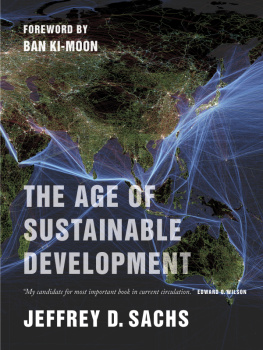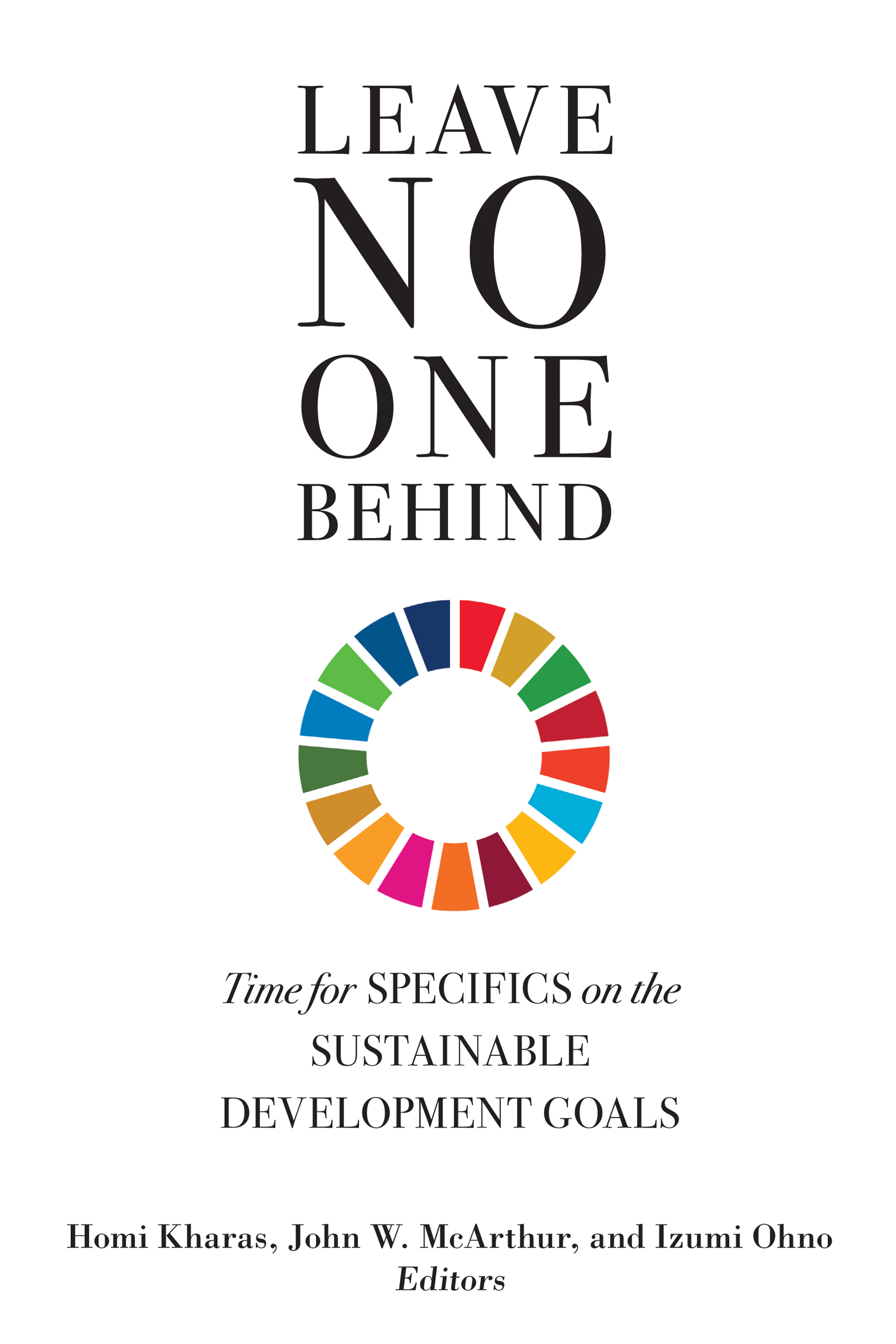Contents
Guide
Pagebreaks of the print version
LEAVE
NO
ONE
BEHIND
Time for SPECIFICS on the SUSTAINABLE DEVELOPMENT GOALS
Homi Kharas, John W. McArthur, and Izumi Ohno Editors
BROOKINGS INSTITUTION PRESS
Washington, D.C.
Copyright 2020
THE BROOKINGS INSTITUTION
1775 Massachusetts Avenue, N.W., Washington, D.C. 20036
www.brookings.edu
All rights reserved. No part of this publication may be reproduced or transmitted in any form or by any means without permission in writing from the Brookings Institution Press.
The Brookings Institution is a private nonprofit organization devoted to research, education, and publication on important issues of domestic and foreign policy. Its principal purpose is to bring the highest quality independent research and analysis to bear on current and emerging policy problems. Interpretations or conclusions in Brookings publications should be understood to be solely those of the authors.
Library of Congress Cataloging-in-Publication data are available.
Library of Congress Control Number: 2019948350
ISBN 978-0-8157-3783-4 (pbk : alk. paper)
ISBN 978-0-8157-3784-1 (ebook)
9 8 7 6 5 4 3 2 1
Typeset in Adobe Garamond Pro
Contents
HOMI KHARAS, JOHN W. MCARTHUR, AND IZUMI OHNO
HILARY MATHEWS AND MICHELLE NUNN
LINDSAY COATES AND SCOTT MACMILLAN
JANE NELSON
DANY BAHAR AND MEAGAN DOOLEY
REBECCA WINTHROP AND LAUREN ZIEGLER
KRISHNA D. RAO, SAEDA MAKIMOTO, MICHAEL PETERS, GABRIEL M. LEUNG, GERALD BLOOM, AND YASUSHI KATSUMA
EIJI YAMADA, ERICA PAULA SIOSON, ENERELT MURAKAMI, AND AKIRA MURATA
NORA LUSTIG, JON JELLEMA, AND VALENTINA MARTINEZ PABON
JENNIFER L. COHEN, RAJ M. DESAI, AND HOMI KHARAS
LANDRY SIGN
TONY PIPA AND CAROLINE CONROY
PAUL OBRIEN
Acknowledgments
T his volume is the outcome of a collaborative project between the Brookings Institution and the Japan International Cooperation Agency Research Institute (JICA-RI).
The editors would like to thank the following individuals for their contributions to the authors workshop: Tamar Manuelyan Atinc, Emily Bove, Mayra Buvinic, David Coady, Shanta Devarajan, Judd Devermont, Tarek Ghani, Margaret Grosh, George Ingram, Paul Isenman, Elizabeth King, Ju-Ho Lee, Robin Lewis, Abdul Malik, Bradley Parks, and Sonia Plaza.
The editors would also like to thank Jennifer Cohen, our outstanding manager of the overall book project, and Cecilia Gonzlez from the Brookings Institution Press, for providing invaluable editorial support.
Brookings is grateful to JICA-RI for its financial and intellectual support of this project. Brookings recognizes that the value it provides is in its absolute commitment to quality, independence, and impact. Activities supported by its donors reflect this commitment, and the analysis and recommendations contained in this volume are not determined or influenced by any donation. The chapters reflect the views of the authors and not the official position of any specific organization.
CHAPTER ONE
Getting Specific to Leave No One Behind on Sustainable Development
Homi Kharas, John W. McArthur, and Izumi Ohno
A Compelling Vision
A world free of extreme poverty. Societies that work for everyone. These are the aspirations embedded in the Sustainable Development Goals (SDGs) and the commitment to leave no one behind by 2030. The ambition was formalized in the joint agreement by all 193 United Nations (UN) member states, in September 2015, to pursue the SDGs. In paragraph 4 of the SDG Summit declaration, world leaders agreed:
As we embark on this great collective journey, we pledge that no one will be left behind. Recognizing that the dignity of the human person is fundamental, we wish to see the Goals and targets met for all nations and peoples and for all segments of society. And we will endeavour to reach the furthest behind first.
In a later part of the same declaration, under Goal 10 for reduced inequalities, world leaders further crystallized their commitment to inclusive societies. In target SDG 10.2, all countries made the pledge to By 2030, empower and promote the social, economic, and political inclusion of all, irrespective of age, sex, disability, race, ethnicity, origin, religion, or economic or other status. There is no ambiguity to the promise of sustainable development for all people.
Since 2015, the spirit of leave no one behind (LNOB) has garnered increasing traction across a growing number of constituencies. It might not be surprising that UN agencies have prominently adopted the LNOB slogan (e.g., UNDP 2018), but the concept has also started to take hold more broadly. Among national governments, sixteen described detailed LNOB efforts in their SDG voluntary national reviews presented at the UN in 2018. Leading intergovernmental and nongovernmental organizations outside the UN have also published major LNOB reports (e.g., OECD 2018; Samman and others, 2018) and respective alliances of civil society organizations launched both the Leave No One Behind Partnership in 2016 and the Leave No One Behind Project in 2017. At a more technical level, the Leave No One Behind Data Collaborative focuses on promoting citizen-generated data and an inclusive data charter. Monash University in Melbourne, Australia, even has its own SDG-focused Leave No One Behind program in partnership with Grameen Australia, teaching social business and entrepreneurship.
Nonetheless, despite the growing resonance around the LNOB phrasing, it is not yet clear the world is implementing relevant policies with corresponding seriousness. For example, estimated numbers of chronically undernourished people have been rising for four years in a row, as of 2018. And even though the rise of anti-elite political movements in many countries has heightened policy interest in ensuring all societies work for everyone, there are still too few signs of decisive gains in addressing the concerns of people feeling marginalized or left behind.
This edited volume represents an effort to treat LNOB as a serious commitment, with a special emphasis on problems of absolute deprivation and basic needs. Ultimately, LNOB requires clarity on the task at handa commitment to supporting specific people facing specific problems in specific places. In this chapter, we provide an overview of the empirical nature of the challenge. We then describe key insights generated by each chapter in focusing on many of the specific people, problems, and places that will define whether the world continues to leave large numbers of people behind in 2030.
The Empirical Nature of the Challenge
There is no single answer to the question of how is the world doing on the SDGs? The world shows too much variation across too many issues, indicators, and geographies for there to be any simplistic diagnosis of current status. Instead, any effort to leave no one behind needs to begin with an assessment of which people are facing which problems in which places. At a minimum, the scale and geographic distribution of each problem need to be considered.
To that end, a 2018 analysis by Kharas, McArthur, and Rasmussen considers country-level trend assessment of two dozen people-focused SDG indicators with adequate data for analysis. The study estimates the number of people slated to be left behind in each country on relevant SDG targets out to 2030. Here we draw from the same methods to present a summary assessment, in some cases drawing from more recent updates to underlying data sources, including the World Poverty Clock. To stress, our emphasis on people-focused economic and social indicators is only meant to drill down on the human dimensions of the LNOB challenge. It is not meant to detract in any way from other important SDG priorities focused on the environment or large-scale issues measured in terms of countries or international aggregates.

